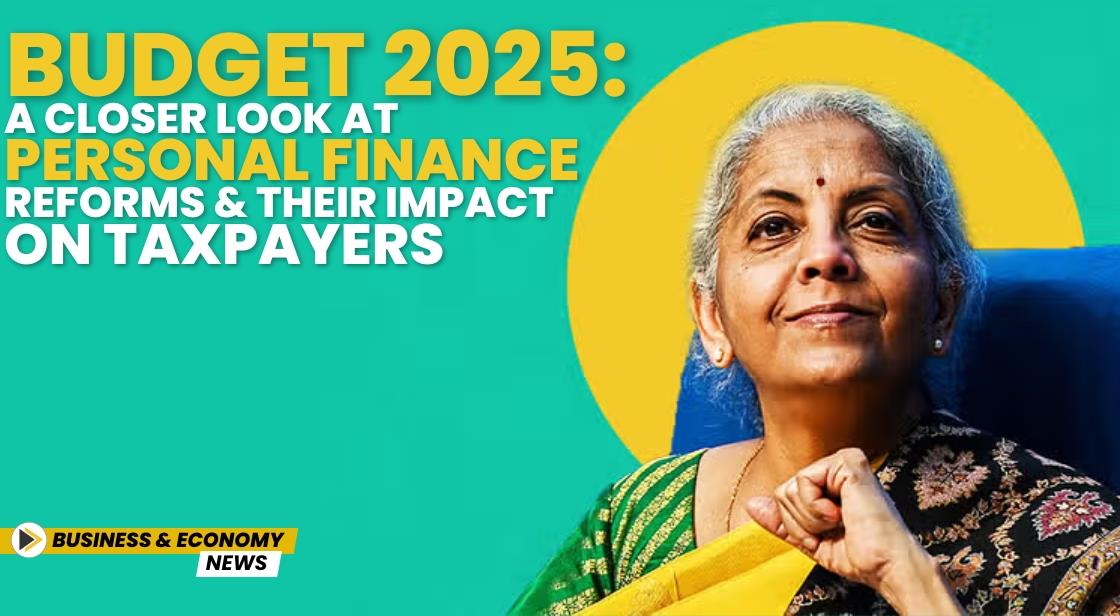Budget 2025: A Closer Look at Personal Finance Reforms and Their Impact on Taxpayers

News Synopsis
As we approach Budget 2025, it is an ideal moment to reflect on the significant personal finance changes that were introduced by Finance Minister Nirmala Sitharaman in the Union Budget 2024.
Presented on July 23, 2024, the Budget introduced numerous impactful reforms in taxation, particularly aimed at providing relief to taxpayers and simplifying the financial landscape.
Due to the general elections in India earlier in 2024, the presentation of the Budget was delayed, as it was presented only after the re-election of the BJP-led NDA government on June 4. This delay, however, did not diminish the significance of the changes that were made, many of which directly impacted individual taxpayers.
Key Personal Finance Provisions in Budget 2024
Short-Term Capital Gains Tax
A major change was introduced in the short-term capital gains (STCG) tax on financial assets. Previously taxed at the applicable slab rates, STCG on financial assets is now taxed at a flat rate of 20%, providing clarity and consistency for taxpayers.
Long-Term Capital Gains Tax (LTCG)
The long-term capital gains (LTCG) tax on both financial and non-financial assets was revised. The tax rate was reduced from 20% to 12.5%, providing a significant relief for investors and encouraging long-term investments.
LTCG Exemption Limit
The exemption limit for LTCG on financial assets was also increased, rising from ₹1 lakh to ₹1.25 lakh. This move benefitted investors, particularly those in the middle-income bracket, by allowing more gains to remain tax-free.
Increase in Standard Deduction
The standard deduction for salaried employees was raised significantly from ₹50,000 to ₹75,000, which provided immediate relief to taxpayers by increasing their tax-free income.
Pension Deduction
The deduction on family pensions for pensioners was enhanced from ₹15,000 to ₹25,000, benefiting senior citizens and offering them better tax relief on their retirement income.
Tax Relief for Properties Purchased
Before July 23 For those who had purchased properties before the Budget date, the government introduced a choice between two tax options. Taxpayers could opt for 20% tax with indexation benefits or 12.5% tax without indexation. This change was aimed at providing relief for property buyers who were impacted by the removal of indexation benefits.
Abolition of Angel Tax
A landmark reform was the abolition of angel tax for all classes of investors. This move was hailed as a significant boost for startups and venture capital, encouraging more investment in emerging businesses.
New Tax Regime Slab Structure
A new tax slab structure was also introduced for individuals opting for the new tax regime. Under this new structure:
-
There is no tax on income up to ₹3 lakh.
-
Income between ₹3 lakh and ₹7 lakh is taxed at 5%.
-
Income between ₹7 lakh and ₹10 lakh is taxed at 10%.
-
Income between ₹10 lakh and ₹12 lakh is taxed at 15%.
-
Income between ₹12 lakh and ₹15 lakh is taxed at 20%.
-
Income above ₹15 lakh is taxed at 30%.
Impact on Taxpayers and the Economy
These changes aimed to simplify the tax structure, promote savings, and enhance the ease of doing business in India. The reduction in capital gains tax, the increase in the exemption limits, and the new tax slabs were designed to provide more disposable income to middle-class taxpayers and encourage long-term investments.
The decision to provide taxpayers with the choice between 20% tax with indexation or 12.5% tax without indexation for properties purchased before the Budget also provided a much-needed relief to those who had made long-term investments in real estate.
Looking Ahead to Budget 2025
As Budget 2025 approaches, these reforms will continue to influence the financial decisions of taxpayers, businesses, and investors alike. With the government’s focus on streamlining tax procedures and reducing the tax burden on the middle class, taxpayers will be watching closely for any further enhancements in personal finance provisions that may be introduced in the upcoming Budget.
You May Like









